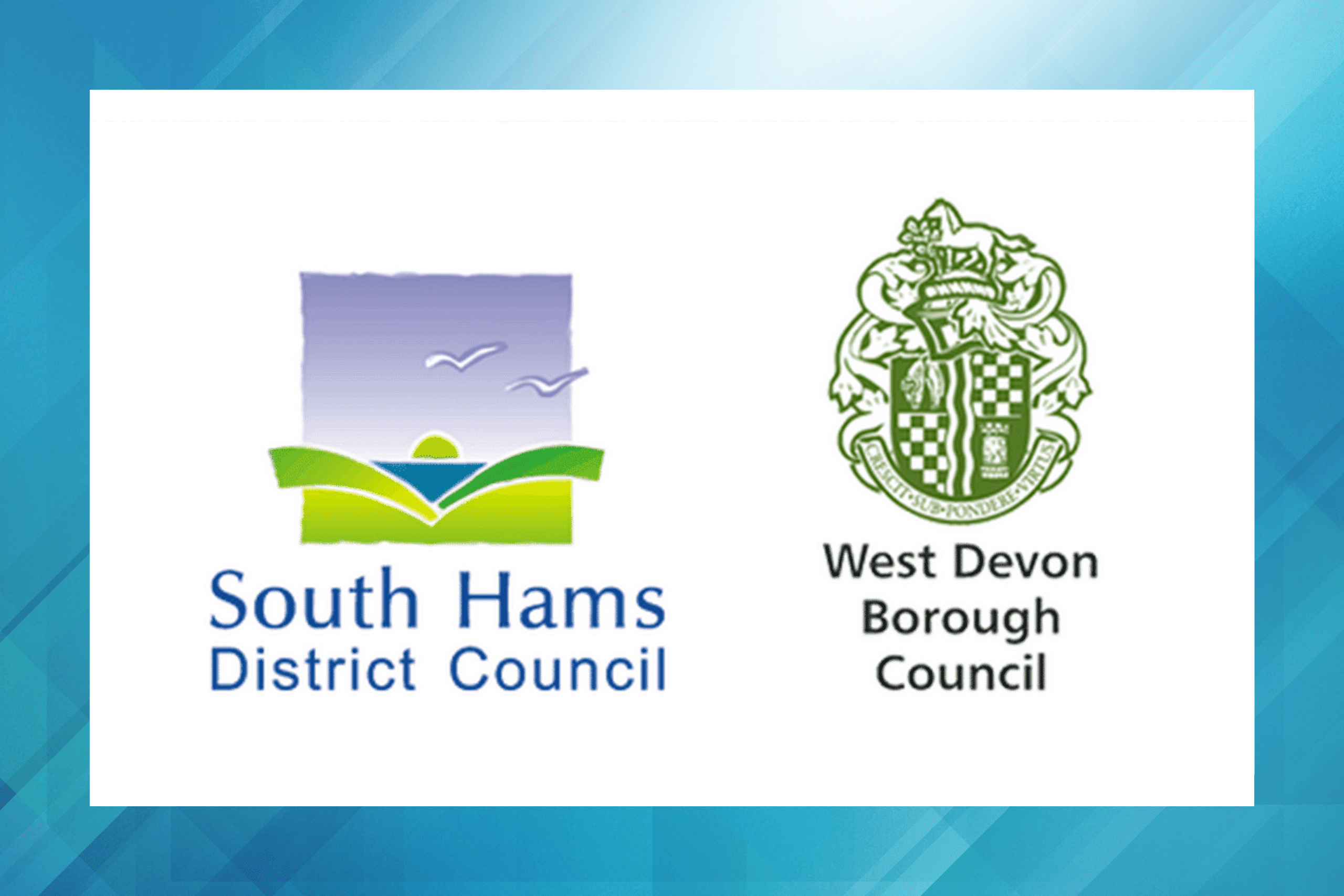Software Creates Backdrop For Further Innovation At South Hams West Devon
Published on 06/09/22
Investment in Netcall’s Liberty Create platform has paid dividends for South Hams and West Devon with 90 processes already brought into the system, creating monetary savings and the backdrop for further innovation. Here we look at the ongoing project which saw the organisations crowned Best Transformation Team at the iESE Transformation awards 2022.
South Hams District and West Devon Borough (SHWD) have been shared service partners since 2007 and are no strangers to innovation. Ever-increasing financial challenges saw them embark on a £7.8m transformational change programme in 2014, known as Transform 2018 (T18), designed to enable the two organisations to become financially sustainable with a payback period of just under three years.
At this point, the organisations realised it was no longer efficient to have separate ICT systems, administration teams and their own management structures, or the best way to serve their customers efficiently. Under the new model, locality managers were recruited and given the training and resources required to undertake 30-plus tasks previously undertaken by specialist officers. In addition, SHWD created a behavioural framework with iESE to allow them to recruit according to behaviours rather than experience. This process, according to Steve Mullineaux, Director, Customer Service Delivery at SHWD, is the bedrock of where the councils are today with a change culture of “always looking to improve and do things better”.
Until recently there were still some issues caused by different back-end systems and siloed processes being managed differently which continued to impact efficiency, resulting in system delays and manual workarounds. Software procured at the start of T18 “talked a good talk” but did not match the organisations ambitions: “Our ideas were three-to-four years ahead of what we were finding the market would support,” explained Jim Davis, Customer Improvement Manager at SHWD.
“When we did T18 there was an element that was IT related but the systems available at the time were not customer focused and were essentially either back-office systems for functions like revs and bens that providers were adapting into front-end systems, or you had website providers trying to make their system do a bit more on the back-end, but they were all trying to adapt their existing technology,” Mullineaux added.
As a result, SHWD started to imagine what utopia might look like, including asking services what they needed to become fully digital and identifying pain points and barriers. It found technology transformation would be essential to drive change forward. After a process of scrutiny, SHWD invested in Netcall’s Liberty Create low-code platform, which has already allowed it to transform 90 customer contact processes in 18 months – such as making a graffiti, lost dog or public toilet report – as well as creating new processes for burden’s arising out of the pandemic.
The first thing the team did when Liberty Create was rolled out on 21 May 2020 was to build an application for the discretionary grant for small and micro businesses affected by the pandemic. This was live and taking submissions by 27 May, which it estimates saved more than £450,000 alone. “It is quick to develop processes but it is also quick to iterate processes so you can be bolder in what you roll out, knowing if there are things that need correcting the following day you can just update the process,” explained Mike Ward, Head of IT at SHWD.
Since then, processes for additional new requirements have been developed, including for issuing payments to hosts of Ukrainian refugees and to distribute one-off fuel payments. “If we went to a traditional provider of these services they would give you a quote and so on, but we have a team skilled up and you give them the requirements and they can have a prototype in a few days which we can see and test. It gives us miles more flexibility and saves us money. I would recommend Liberty Create to other councils without a doubt,” added Mullineaux. Importantly, it also enables tweaks to be rapidly made to reflect any differences between the two Councils’ services, which are not all identical.
SHWD had already undertaken process redesign when undergoing earlier transformation work. Although they process mapped each task to take advantage of the new functionality the software provided, Davis explained that the aim is not to save a few minutes here and there by making processes leaner, what they are aiming to do is make the whole system more efficient. “Officers in the past have tried to solve problems by developing different ways to manage and prioritise tasks, like using Outlook inboxes. It means wasting time, double handling, and more time spent managing work than doing work. We now keep all the management within Liberty for processes. This saves far more time than a theoretical few minutes on a process map somewhere,” he explained.
SHWD is moving away from unsolicited email or email as a first point of contact, since if a customer can email, they can fill out a web form. The system now automatically indexes email replies too, minimising delays and failure demands, with advisors getting instant visibility of an enquiry. This has removed the work of two full-time equivalent roles, with further savings expected in the future.
An online general enquiry process is also in place, aimed at cutting the numbers of phone and email enquiries by routing customers to the right option. This means a non-completed process is a good thing, with 75 per cent being able to self-serve. Customers are also able to say how they found the service – giving both a rating and written feedback. “When you are trying to design the best processes, it is from a certain point of view and it is not until it meets the customer that you get that feedback,” said Davis, “We had someone who said it would be handy to have a copy of their application for their records. The system creates a PDF so all we had to do was create an extra action which emailed that PDF automatically back to the customer if they checked a box.”
While they have made great progress, Davis and Ward stress this is just the start: “This is step one and us laying the groundwork. There is a lot of untapped potential in the system. We have bigger plans that are less Netcall-orientated and less dependent on the system, but the system is the enabler for it, it gives us the data we need to do the smart stuff we have planned,” said Davis.
This includes bringing revenue and benefits into the system, creating a legal case management system, and rolling out the system so locality officers can access the platform outside. They will continue to focus on transformation needs, both for customer-facing and back-office activities, prioritising areas where failure demand of any type is high. One of the reasons SHWD chose Liberty Create over other platforms is because it gives access to real-time management data. “You can constantly see how the system is performing, the throughput of the service requests and transactions and the individual performance and it all falls out the back of the system without a great deal of effort as real time information. The potential it gives us for informed decision making is enormous,” explained Ward.
The main benefits of low-code, they say, are speed and cost-savings coupled with being able to design a solution to fit your service, rather than changing your service to fit a system. It has developed a Customer Relationship Management system, for example, which automatically de-duplicates records: “What we can do is ask services, what do you need in a system to deliver, rather than saying we have a system that could do that if we move this around,” Davis added.
They are converts, with Ward explaining that they plan to train more staff to do more complex things such as integrations and to make Liberty Create the development platform of choice: “I have worked in local authority since the nineties and I haven’t seen anything as good as this in the speed of development,” he concluded.
If you would like to read a case study of South Hams and West Devon Councils, please click here.







